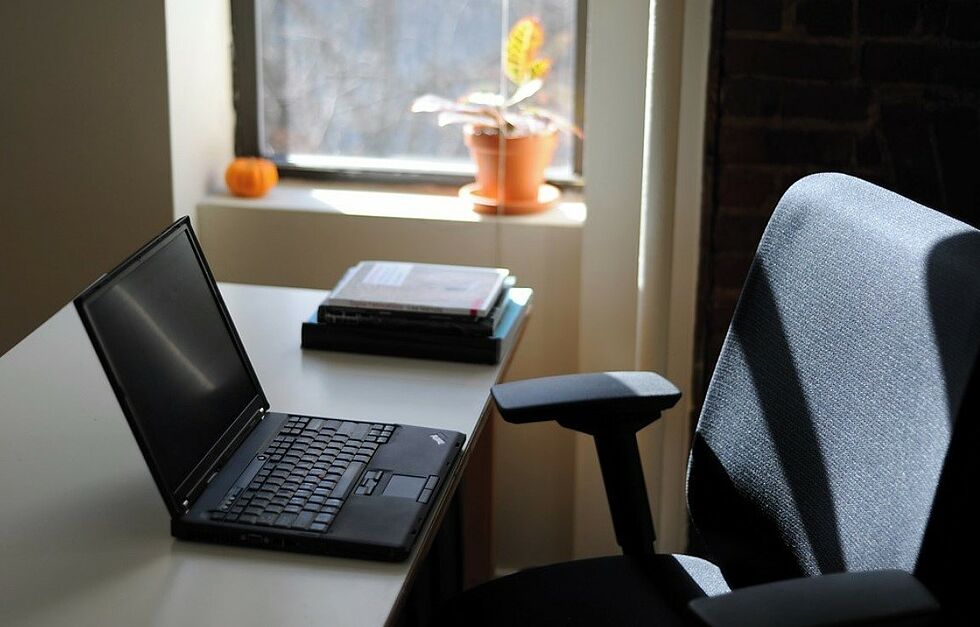Telework: a luxury or a "curse"?
Etymologically, telework refers to a job done remotely. Upon googling the term, it appears that telework would be "any form of work organization, in which a task that could have been performed on the employer's workplace is carried out by an employee outside those premises voluntarily using information and communication technologies".
In some websites, we learn that it was not until 1972 that the term "Telework" appeared for the first time and that is in an article in the Washington Post signed by a journalist called Jack Schiff. In the same era, Jack Nilles, who is considered the father of telework, launched his first works on what he, in 1975, would refer to as "Telecommuting". It is the Home Office using a computer and a telephone ... 40 years later, many of us are still stuck in the office… Today, the Home Office has become a real organizational project in line with a business strategy whose practice is not well regulated. Its advantages and disadvantages are still open for discussion.
The lockdown has proven it: we can function well together when we are not in the same location. Videoconferencing works fine and sharing data in total security is no longer a problem. So why not go further?
Let's take a closer look at the advantages and disadvantages of this new corporate culture, which is rather attractive to some and unpleasant for others.
Telework for better personal harmony
The situation related to COVID-19 made it a must, telework was imposed on Tunisians. This corporate culture had so far been ignored by the majority of large national structures. We had to adapt, deal with technical problems, learn how to use videoconferencing tools, and be conscious of potential hacking risks ...
But how do our fellow citizens apprehend this new concept?
Teleworkers are known to be less stressed because everything is done from home. Forgetting daily constraints such as traffic jams, waking up early to get ready, results in a gain of energy and productivity for the employee because everything happens "at home". Indeed, this "independence" granted to the Tunisian employee would allow them to be more efficient and zen. They would not be distracted by their colleagues. Above all, they will be granted this freedom to determine their work schedules and establish their work plan. For the employer, it means significant savings on facility maintenance cost, electricity costs, and others.
Also, teleworking was pushed by the health crisis. It made it possible to see its important impact mainly on the mobility of workers. It also contributed to the decongestion of road traffic and public transportation that are usually saturated.
Its benefits on the environment and its impact on sustainable socioeconomic development are considerable. CO2 emissions and more specifically the greenhouse gases responsible for global warming along with fuel and energy consumption have dropped and office waste is diminished. Savings in transportation costs and low office occupancy result in better energy management. From a social point of view, employees would strike a better balance between their private and professional lives.
Furthermore, reports indicate that travel restrictions, state lockdown and the hold put on the activities of factories around the world have reduced emissions of nitrogen dioxide and carbon dioxide in several countries. This has undoubtedly allowed biodiversity to regenerate, and Mother Nature to breathe!
Impact of telework on the employee’s well-being
Life is not always rosy and telework is no exception. Working from home can have some disadvantages if the employee cannot find the right formula.
Lack of direct interaction and motivation as well as social isolation can disrupt the balance of the teleworker. It is all about discipline and organization. Everything can change at any time if the teleworker is not able to distance their professional commitments from their private life. The teleworker needs to have a well-suited place at home away from the distractions of private life (young children, endless shores, personal issues ...) with all the required resources to perform their duties in the best way possible.
Besides, the employee could get into a routine phase which would push them to no longer respect their schedule.
The solitude and physical inactivity are two undeniable factors to think about as the employee spends most of their time home working, due to a lack of movement and direct human contact.
La solitude et la sédentarité sont deux facteurs indéniables à prendre en considération lorsque l’employé passe la majorité de son temps à la maison en télétravail, et ce par manque de contact direct humain et de déplacements.
This new way of working can even disrupt ordinary habits such as getting dressed, taking your means of transportation, walking, taking lunch ...
On the other hand, from an environmental point of view, teleworking would increase energy consumption in homes: heating, air-conditioning, electricity consumption of electronic devices used for teleworking (laptop, tablets, smartphone recharging…). There are also some expenses related to home maintenance, unbudgeted purchases, and so on ...
Telework, take it or leave it!
I will refrain from concluding or even deciding if teleworking is a concept that would take a positive part in the current working environment, especially when inescapably its disadvantages rise to the surface. I leave it to you to have your own opinion and decide if teleworking is a luxury or rather a "curse"?
###
Malek Lamine is project coordinator at the FES office in Tunisia


